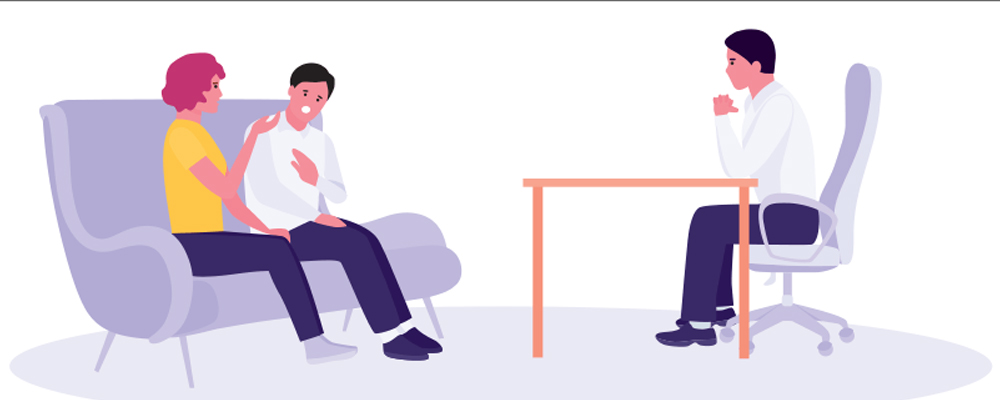Addiction Therapy: Finding the Right Addiction Counsellor Near Me
Dealing with addiction can feel like a lonely journey, but it doesn’t have to be. Finding the right help is crucial, and that’s where addiction therapy and counsellors come in. Whether you’re looking for an “addiction counsellor near me” or seeking information about “addiction issues counselling,” this guide is here to help you understand the importance of seeking professional assistance and how to go about it.
Understanding Addiction
Addiction is more than just a bad habit; it’s a complex condition that affects both the brain and behavior. It can take many forms, including addiction to substances like alcohol and drugs, as well as behaviors like gambling or internet use. Recognizing addiction is the first step towards recovery.

The Role of an Addiction Counsellor
Addiction counsellors are like guides in the wilderness of recovery. They help you navigate the difficult path of overcoming addiction by offering support, strategies, and tools tailored to your specific needs. These professionals are trained to understand the underlying issues that contribute to addictive behaviors and work with you to develop a plan for recovery.
Types of Addiction Therapy
There are various types of addiction therapy available, each catering to different needs and preferences.
- Cognitive Behavioral Therapy (CBT): Helps in changing negative thought patterns.
- Motivational Interviewing: Encourages finding personal motivation to change.
- Family Therapy: Involves family members to support recovery.
- Group Therapy: Provides a supportive community of peers facing similar challenges.
Benefits of Addiction Issues Counselling
Why should you consider addiction issues counselling? Here are some compelling reasons:
- Personalized Treatment Plans: Counsellors develop plans specific to your needs.
- Emotional Support: Provides a safe space to express feelings and fears.
- Skill Development: Teaches coping strategies to handle triggers.
- Accountability: Helps in setting and achieving recovery goals.
How to Find an Addiction Counsellor Near Me
Looking for a counsellor might seem daunting, but it’s easier than you think. Here are some steps:
- Research: Use online directories and reviews.
- Referrals: Ask your doctor or friends for recommendations.
- Consultations: Meet potential counsellors to find a good fit.
- Credentials: Check their qualifications and experience.
What to Expect in Addiction Counselling
Walking into your first counselling session can be intimidating, but knowing what to expect can ease your nerves. Typically, sessions involve:
- Assessment: Understanding your history and current situation.
- Goal Setting: Identifying what you want to achieve.
- Therapy Sessions: Regular meetings to discuss progress and challenges.
- Homework: Practical exercises to reinforce what you learn in sessions.
The First Steps in Addiction Recovery
Taking the first step in addiction recovery can be the hardest. It often starts with admitting there is a problem and seeking help. This might involve detoxification, where your body gets rid of the addictive substance, followed by ongoing therapy to address the psychological aspects of addiction.

Family and Addiction Counselling
Addiction doesn’t just affect the individual; it impacts the whole family. Family counselling can help rebuild trust, improve communication, and create a supportive environment for the person in recovery. It’s about healing relationships and understanding how each family member can contribute to the recovery process.
Overcoming Stigma
One of the biggest barriers to seeking help is the stigma associated with addiction. It’s important to remember that addiction is a medical condition, not a moral failing. Overcoming stigma involves:
- Education: Learning about the nature of addiction.
- Support Groups: Connecting with others who understand your journey.
- Advocacy: Speaking out to challenge stereotypes and misconceptions.
Success Stories
Hearing about others’ success can be incredibly motivating. Many people who have struggled with addiction have gone on to lead fulfilling lives. Their stories of resilience and recovery serve as a testament to the effectiveness of counselling and the possibility of change.
Conclusion
Addiction is a challenging condition, but with the right support, recovery is possible. Seeking help from a professional addiction counselor can provide the guidance and tools needed to overcome addiction. Remember, you’re not alone, and taking that first step towards counselling is a courageous move towards a healthier, happier life.
Read more information:- Click here
Frequently Asked Questions (FAQs)
1. What is addiction issues counselling?
Addiction issues counselling involves working with a trained professional to address the emotional, psychological, and behavioral aspects of addiction. It aims to help individuals understand their addiction, develop coping strategies, and achieve lasting recovery.
2. How long does addiction counselling take?
The duration of addiction counselling varies based on individual needs. Some may find significant progress in a few months, while others may benefit from longer-term support. It’s a highly personalized process.
3. Can I attend addiction counselling online?
Yes, many counsellors offer online sessions, which can be a convenient and effective option, especially if you have difficulty accessing in-person services.
4. How do I know if I need addiction counselling?
If addiction is impacting your daily life, relationships, or well-being, it’s a sign that you could benefit from counselling. Speaking with a professional can help you determine the best course of action.
5. Is addiction counselling covered by insurance?
Many insurance plans cover addiction counselling, but coverage can vary. It’s best to check with your insurance provider to understand what services are included.
